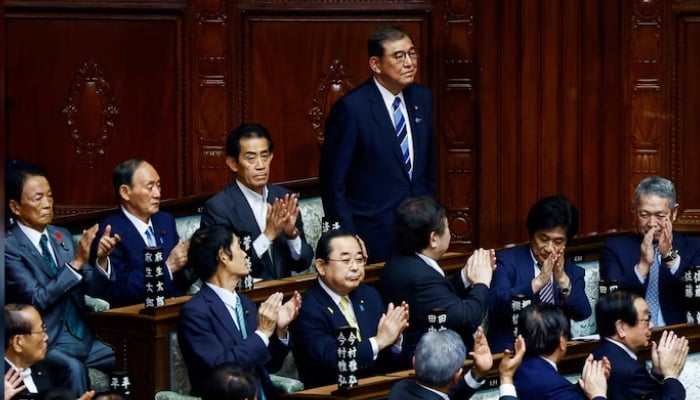As Japan faced a leadership transition, veteran politician Shigeru Ishiba has formally anointed as the nation’s new prime minister, with a highly anticipated unveiling of his cabinet.
To mend party rifts and get ready for an early election on October 27, the 67-year-old was scheduled to be voted in by parliament on Tuesday to become Japan’s next prime minister and present his cabinet.
Ishiba, a former minister of defence, was officially appointed to the new cabinet by the Emperor at a ceremony held at Tokyo’s Imperial Palace after the confirmation of his presidency.
He who has always been viewed as an outsider in the party, must deal with the pressing issue of bringing the split LDP together as well as domestic dissatisfaction with growing living expenses and the numerous scandals that have dogged his organisation.
Beyond these domestic problems, the new prime minister will have to deal with an increasingly unstable security landscape in East Asia, where Japan continues to be concerned about North Korea’s nuclear aspirations and China’s growing aggressiveness.
Ishiba, who has led his nation for the past four unsuccessful times, will need to move swiftly to choose the government and party representatives who will run alongside him in the next election.
Key LDP figures who were competitors in the most recent leadership contest are among his first appointments: Yoshimasa Hayashi, who will continue to hold the significant position of chief cabinet secretary and serve as the government’s principal spokesperson, and Katsunobu Kato, who is anticipated to serve as finance minister.
Ishiba’s term is expected to be thoroughly examined, particularly in light of Japan’s diplomatic strategy and its relationship with the United States.
The new prime minister has previously called for a more balanced relationship with Washington, a stance that could shift Japan’s foreign policy in subtle but important ways.







